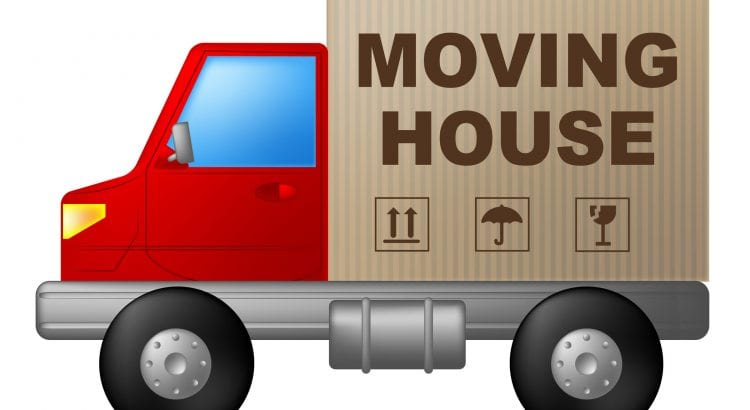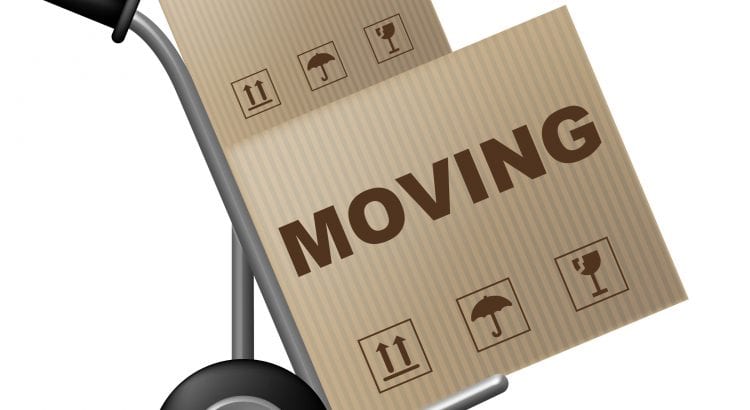Whatever the circumstances surrounding your upcoming move — good or bad, exciting or nerve-wracking — the process is going to be fast-paced, overwhelming, and potentially stressful. However, it doesn’t have to be this way! It is possible to go through with a house move and not turn your hair grey at the same time.
If this sounds appealing to you, here are our top five tips to deal with stress when moving.
1. Plan and then plan some more
We all procrastinate, especially when something as overwhelming as moving house is on the horizon. However, attempting to clear clutter, pack those boxes, organise your belongings, and vacate your old home all at the last minute is guaranteed to bring on unnecessary levels of stress. You need to start planning far earlier than you think!
However long you think it is going to take, double it. Seriously, things are going to crop up that you don’t expect and nothing will go entirely according to plan, so prepare yourself with a realistic timeline.
In order to remain calm, cool, and collected during this time, make a list of what needs to be done, and then break these tasks into weekly to-do’s. From this point, you can divide the weekly to-dos into more manageable daily tasks. This strategy is the best way to beat procrastination and help you feel as though you are in control of the situation. There is so much to remember that it helps to have a moving house checklist.
2. Schedule “me” time
Whether or not you want to be moving, there are still (probably) going to be feelings of grief about the upcoming transition. Don’t be afraid to experience these feelings – they are normal, and everyone has them!
That being said, it is essential to take care of your own well-being while you are dealing with this process. Ensure that you are regularly getting enough sleep and that you are eating a wholesome, balanced diet. Far too often, when you are busy, these things go out of the window. But being tired is only going to make the move feel a lot more overwhelming and stressful!
Additionally, schedule “me” time so that you don’t feel as though the move has taken over your entire life. Whether that means regular exercise (which you should be doing!), time to read, coffee with friends, or meeting up with your local knitting group, don’t forget about the things that make you happy.
3. Hire a professional removals company
There is a reason that people hire professional movers – they reduce so much of the stress! If your budget allows, hire a dependable removal company that can pack and move your furniture. On the day of the move, you will be thanking yourself for making this investment.
4. Reach out to your friends and family
In addition to hiring movers, you also should make use of your network. Friends and family will undoubtedly be willing to help you with anything you need before, during, and after the move. Relocating shouldn’t be a lonely process and having your loved ones by your side as much as possible can aid you in reducing the stress.
5. Shift your mindset
Heraclitus, the Greek philosopher, profoundly said “the only thing constant in life is change” and even all these centuries later, it remains true. Change is going to happen in your life, you can’t always resist it. However, change can be seen as exciting — a new adventure — you just have to shift your mindset.
When you find yourself getting sad, stressed, or nostalgic about what you are leaving behind, reflect on this quote and open yourself up to embracing what is to come.
There’s no question that moving is stressful, overwhelming, and often downright annoying. However, it has to happen. We all have to do it at certain points in our life. Don’t expect it to be a walk in the park.
When you feel stressed and crabby, sit with yourself and identify what exactly is making you feel this way. From this point, you can make a plan for dealing with it. By utilising these five tips, you can make the move a lot less stressful and maybe even bearable. Good luck with the move and remember, “home is where the heart is, even if you can’t remember which box you packed it in!”
AUTHOR BIO
John Pfeiffer has been the proud owner of Ashtons Removals for over 40 years. His attention to detail, a product of his accountancy background, and his emphasis on training and empowering his team members, has ensured the vast number of Gold Coast families who have been moved by Ashtons Removals, have had their furniture and effects moved undamaged and with minimum fuss.














